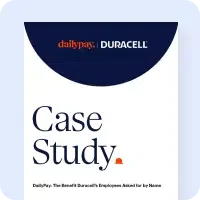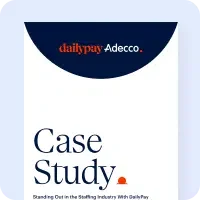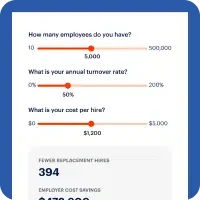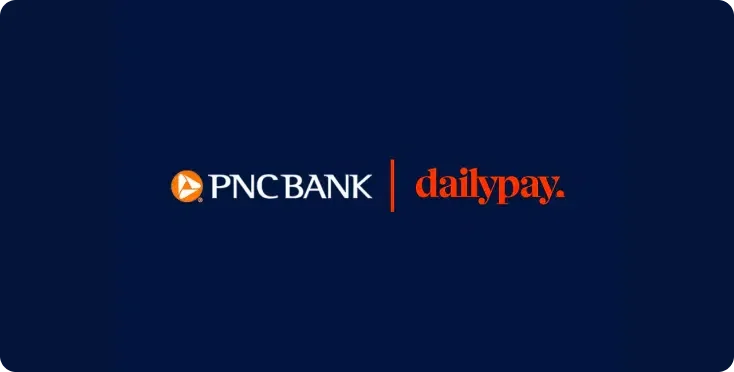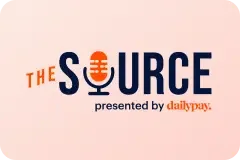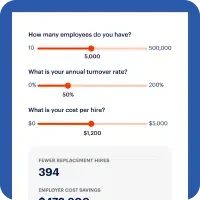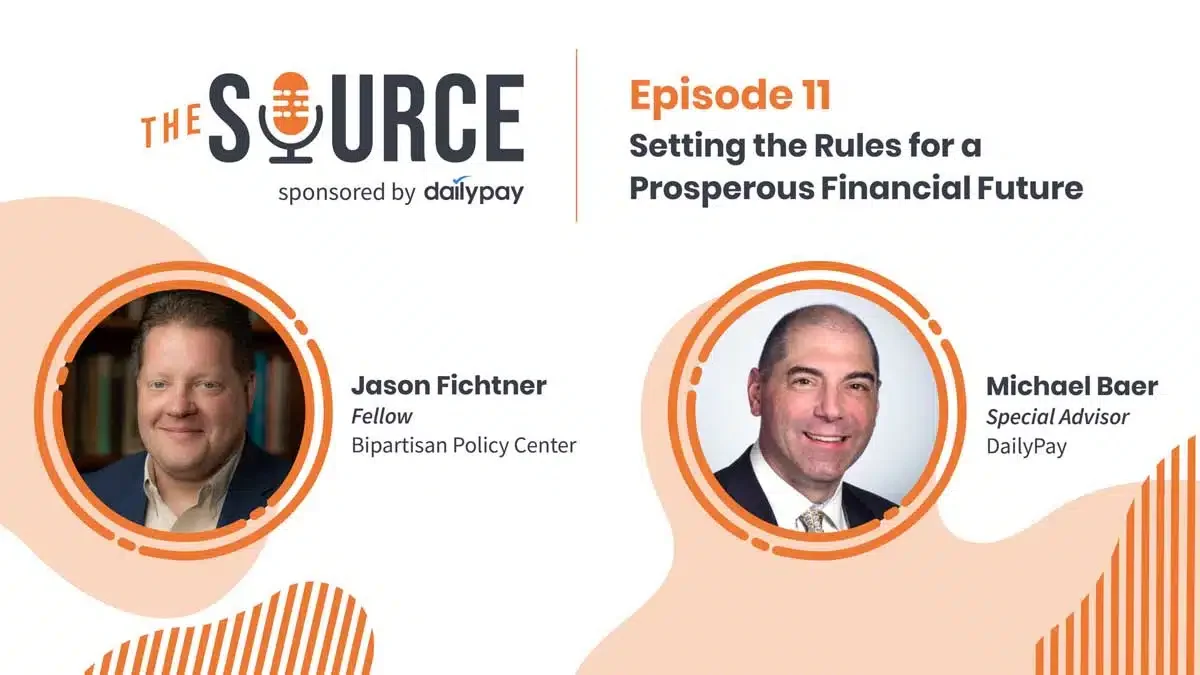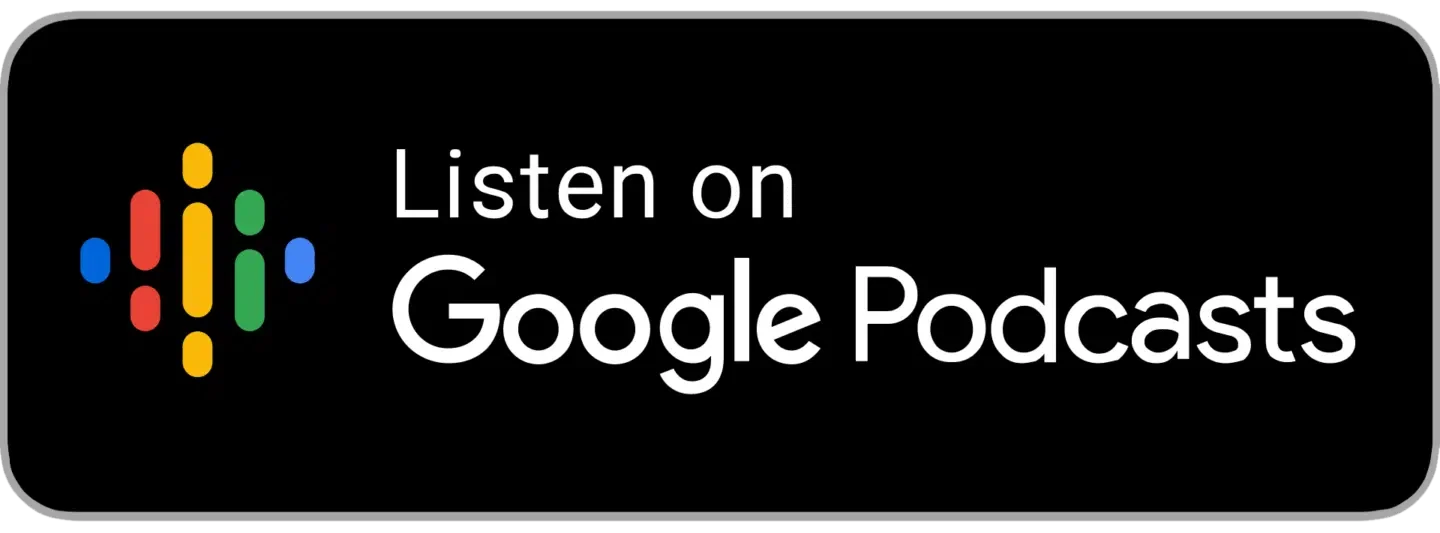Episode Description: Professor Jason Fichtner, a fellow at the Bipartisan Policy Center, and a Johns Hopkins senior lecturer, explains the thought processes of how people interact with money and how they can be changed to help people become more financially stable. He will discuss how our ability to be more financially aware through technology can aid in these decisions we make about money, and how to frame the decision-making process surrounding the amounts we have versus the amounts we need.
About Our Speakers

Jason Fichtner is a fellow at the Bipartisan Policy Center, and is a Senior Lecturer and an Associate Director of the Master of International Economics and Finance program at Johns Hopkins School of Advanced International Studies, also known as SAIS, in Washington D.C.
Professor Fichtner served in several positions at the Social Security Administration, including as Deputy Commissioner of Social Security (acting), Chief Economist, and Associate Commissioner for Retirement Policy. He also served as senior economist with the Joint Economic Committee of the US Congress. Previously, he also was a senior research fellow at the Mercatus Center at George Mason University.
Fichtner’s research focuses on Social Security, federal tax policy, federal budget policy, retirement security, and policy proposals to increase saving and investment.
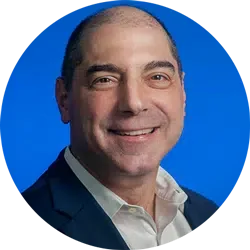
Michael Baer is the host and executive producer of The Source podcast. Michael previously oversaw domestic and international payroll news and analysis at Bloomberg Tax, previously BNA.
In a career spanning three decades, Michael transformed the role of managing editor, becoming an information services leader who managed every aspect of world-class global products and platforms, while continuously increasing revenue and achieving market-best customer satisfaction. He directed a team of editors and writers who were charged with translating complicated tax and labor laws into English so non-lawyers could easily understand and apply them, and was integral in organizing and placing that content on easy-to-access web platforms, resulting in the highest net promoter scores the company had seen for any of their offerings.
Michael has been a frequent public speaker for conferences and webinars, and now is the host of The Source, sponsored by DailyPay. Michael joined the DailyPay team in 2019.
In this podcast you will learn about…
- How new tools, which provide more personal financial awareness, can positively impact financial behavior
- The way to frame the financial decision-making process around what we have vs. what we need
- The key to building savings, regardless of income or financial situation
About this podcast and transcript:
Welcome to The Source, by DailyPay, the definitive destination for timely and informative regulatory updates and issues in the on-demand pay industry.
DailyPay is the recognized gold standard for providing the daily pay benefit and pay experience.
This material is for general information only and the views expressed herein reflect only the views of the participants.
This program should be considered marketing material and should not be relied on as legal, tax, accounting, or regulatory advice.
And now, let’s welcome our host, Michael Baer.
Michael Baer:
Hello everyone, and welcome to The Source. The Source is sponsored by DailyPay and it provides insights into active and upcoming legislation impacting the on-demand pay industry. And with special guests, we help clarify issues surrounding early access to pay in the pay experience. And today I have the pleasure of talking with Professor Jason Fichtner. Jason Fichtner is a fellow at the Bipartisan Policy Center and is a senior lecturer and an associate director of the Master of International Economics and Finance Program at the Johns Hopkins School of Advanced International Studies, also known as SAIS in Washington, DC.
Michael Baer:
Professor Fichtner served in several positions at the Social Security Administration, including as acting deputy commissioner of social security, chief economist, and associate commissioner for retirement policy. And he also served as senior economist with the Joint Economic Committee of the US Congress. Previously, he was a senior research fellow at the Mercatus Center at George Mason University. Professor Fichtner’s research focuses on naturally, social security and federal tax policy, federal budget policy, retirement security, and policy proposals to increase saving and investment. And today he is here to talk about setting the rules for a prosperous financial future. Welcome, Professor Fichtner.
Jason Fichtner:
Thanks for inviting me, Mike. It’s a pleasure to be here today.
Michael Baer:
Now, Jason, you have been, let’s just say studying and writing about how people interact with money and it’s a behavior that we can literally train the brain on in order to secure a better financial future. What led you to start thinking about applying behavioral insights to financial security?
Jason Fichtner:
I was trained as a classical economist, that everyone is a rational actor. So if they have full information, they’ll make rational decisions. But when I was at the Social Security Administration, I was the principal deputy commissioner and the chief economist. We started noticing that how we were framing information was potentially affecting retirement claiming decisions. So for example, the agency, when talking about the ID and still does, of the early eligibility age, if you think about social security retirement, most people think about retirement at age 65. They retire from their work. They get a gold watch and they go have their golden years in retirement.
Jason Fichtner:
But the agency was talking about full retirement age, early eligibility age. Well, what does full retirement mean? And if you tell someone they can retire early, they don’t even think about the idea that they might get a reduced benefit. And that’s actually how Social Security Administration and the benefits are designed. You get an early benefit if you claim early, it’s a reduced benefit. In fact, if you claim at 62, the benefit can be reduced over 25%. Now, technically, if you live to the average age, it’s actually really fair, but for those who live longer, they actually come out short and actually that reduced monthly benefit can harm them in retirement when they need it most in their 80s or 90s.
Jason Fichtner:
And what the agency was doing was inadvertently helping people claim or pushing them to claim, nudging them to claim if you will, early. And right now about 65% of people who claim social security benefits do so before their full retirement age, which right now is age 66 and going up to age 67. And that can have a very significant impact. When someone would walk into the Social Security Administration and talks to a claim representative, they would go in at say age 62 and they would ask the claims rep, “When should I take social security benefits?” And the claims rep would say, “Well, let’s do what’s called the break even analysis. If you claim at age 62, you will get benefits now as opposed to waiting until 66, that’s four more years you’ll get benefits.
Jason Fichtner:
They’re reduced, but you’ll be ahead for the next 14 years.” And by telling somebody they’ll be ahead for 14 years, people are like, “That’s great. I’m going ahead. Sign me up today at age 62.” What the agency didn’t tell them is that they live for 14 more years and beyond that, at that beyond point, they’re then behind for the rest of their life. That framing makes a huge difference also showing them the benefits of delayed claiming. So for example, if someone was supposed to get a $1,000 a month by waiting until age 66 to retire, if they retired at age 62 or claimed benefits at 62, that amounts to about $730. That’s a major reduction from 1,000 to under 730. But if they delayed even to age 70, that amount goes to almost $1,300.
Jason Fichtner:
So when we started showing them the numbers are different on a monthly basis, they started changing their behavior. And that’s when I realized that the behavioral insights, the framing made a difference. And we started changing the way we were talking to the beneficiaries, to the public. We got rid of the breakeven analysis at social security when I was there. And now we’re trying to do efforts to get rid of the nomenclature. We’re trying to get rid of talking about early eligibility age, and instead, maybe talking about minimum benefit age and maximum benefit age so that people will have a discussion about what the numbers are in between and what’s actually best for them.
Michael Baer:
That’s super interesting because this kind of analysis, we can apply in general to other circumstances, right? Just generally in our financial futures, what kind of design tools or nudges can we use to help people save more or consume better, or just spend more responsibly?
Jason Fichtner:
That’s a great question, Mike. And a couple of things pop in mind. One is nudges and another one is something called mental accounting. And I think I’ll take mental accounting first and then we’ll go into nudges. So mental accounting, when you think about people, again, being trained as a neoclassical economist, the idea of the rational actor. To an economist, money is fungible. If I give you a dollar, Mike, and say, “This dollar can only be spent on lunch,” you might say, “Great, I have this now dollar,” but you had already assumed you were going to spend five of your own dollars on lunch and you’re still going to do it. Now you have this extra dollar I gave you.
Jason Fichtner:
You could put that dollar towards the five and spend six, or you could say, “I’m still going to spend five and I’ll take Jason’s dollar, put it in that five, take that one dollar out of the five you had and go spend it on something else. That’s the fungibility of money. And that’s how an economist says people are rational actors. But people don’t behave that way in reality. They think of things as buckets. This is the mental accounting. People think about having a bucket for retirement, a bucket for entertainment, a bucket for travel, a bucket for utilities. And if we start showing people and helping them understand that they think in buckets, we could set up savings plans and consumption plans along those buckets.
Jason Fichtner:
So now when people start getting their paycheck, they can start putting money aside and actually from a mental accounting standpoint, say, “I’m going to put 10% of my paycheck towards utilities. 10% towards savings. 10% towards travel. 10% towards entertainment. And even though the money could still be in one account, there is a mental accounting, a picture that’s shown on the internet or through an app and DailyPay can do this and say, “Here’s how much you’ve allocated or budgeted towards each category. And once you get to a certain level, then you can spend that down.” And that’s mental accounting. And that’s how people think. And that’s just designing a tool. That’s not changing any legislation. It’s not changing anything about mandates.
Jason Fichtner:
It’s just saying, “We’re going to help you frame something differently to think about how you spend your money so you can do a better job saving and spending.” And that’s the mental accounting. And then we can also go into nudges, and nudges are really, really helpful when they… nudge people do things they want to do anyway. So most people will tell you they do want to save. They want to save for a rainy day. They want to save for retirement. They want to save for a house. They want to save. But they might find it difficult. And so we try to help them by nudging. And the nudge could be for example, an automatic enrollment or a default. So we can automatically enroll you into a savings plan or retirement plan.
Jason Fichtner:
Now, the difference between a nudge and a mandate, a mandate forces you to do it, a nudge defaults you in but gives you the option of saying no. And what the research has shown is if you go to somebody and say, “Would you like to sign up for retirement plan today? Pick yes or no.” A lot of folks will say no even if they want to because they’re not sure about their budget constraint. But if you go to them and say, “Hey, we have now opted you into this retirement plan. If you want out, just tell us.” A lot of folks will say, “Wow, I’m already in it. I’ll give it a try.” And that helps increase savings. And that’s where nudges are very, very powerful.
Jason Fichtner:
And again, thinking about how this works for mental accounting, you can see where something like DailyPay is very helpful with their ability to have, the way they said, you can have money going from your paycheck into these mental buckets to help you save for retirement or save for utilities, save for rent, save for a rainy day, or save up an amount of money when you hit a level that then you can go out and spend. This is how you can use behavioral insights to help people save and also spend more responsibly.
Michael Baer:
And I think what you’re hitting on here is that we got to start thinking like accountants. And when we have that extra dollar that comes in, we have to say, “Okay, so where is it going to be allocated to?” My wife and I have been training ourselves to do that in our household budgeting. And it’s a challenge, but we are really starting to think like, this is our accounting. It’s all our stuff and it all has to be allocated somewhere. But it’s very interesting. I think you pointed out the psychology of all this and that you also mentioned briefly this automatic enrollment in 401(k) plans.
Michael Baer:
And for many, there seems to be a natural inclination against having anything automatically done, especially with finances. And I just was thinking, how does one overcome this tendency to just resist these types of applications that really are more beneficial?
Jason Fichtner:
That’s a great question, Mike. And it’s very important to think about this. And I think there’s some resistance to automatic enrollments on the finance side because it’s people’s money. They might need it for something else. The difference I would point out between a nudge again, and a mandate is on the nudge, we can auto enroll somebody, but we do make it easy for them to get out. We say, we’re going to put you into this plan. We’re going to sign you up for a savings plan. We’re going to sign up so that part of your paycheck goes for rainy day account. We’re just going to do this automatically, but you have the right. And it’s very easy to say, “No, I don’t want to do that.” That’s sort of making the barrier a little bit easier to overcome when you auto enroll or default somebody in.
Jason Fichtner:
And I think that’s what we, when I’ve talked with legislatures and policy makers who are looking at ways to increase savings, we’ve talked about our enrollment in defaults as a way to help people overcome that initial barrier of getting into a system. That initial reluctance by saying, it’s not mandatory. There’s a way to get out. It’s very simple, just say no. But it’s that barrier of having to actively choose yes or no that becomes very hard for people. It becomes very complex. They might get scared. They might get reluctant and that’s very important. There’s issues with procrastination. We’ve seen, behaviorally speaking, it’s very interesting, people who are procrastinators, for example, imagine you start a new job and they say, You’ve got 30 days from the day you start to sign up for retirement plan.
Jason Fichtner:
Those that wait until the last day or two to do so end up saving less than those who sign up right away. And it’s sort of this idea that people who don’t plan to fail, they fail to plan. And so by helping them set up a plan and default them in, we can overcome those psychological barriers to savings. And when I mention this to legislatures and again, policymakers, the idea of nudging becomes very important. They now get it so long as we maintain the option to make it easy for folks to say, no, they really don’t want to do it. I think that’s how we can overcome that barrier.
Michael Baer:
So what I’m hearing from you then is that there is this, that the automatic enrollment is kind of more of a nudge. It’s not a mandate, and there’s the option to not participate if you don’t want to. And so that makes it a lot more palatable and easier for us to digest. And like you said, people, oh, well, I’m already in it, let’s see how it goes. I can always get out of it. And they have that option. So that’s good. Well, let’s move on. I’m understanding it’s not just about these cash flows that are going in and out of our accounts, it’s about information. And the financial information that we have about our own personal finances are the monies that we have.
Michael Baer:
I know, for example, with DailyPay, we may only access our earned balance once a week. We may only take something out once a week, but we’d look at it once or twice a day just to see how this is accumulating, and is just that curiosity or can changes like that, the ability to have such financial awareness, how can that impact financial behavior on a positive way?
Jason Fichtner:
That’s a great insight, Mike. And I think what’s important to realize is that financial information, the ability to see it clearly in a cognizant simple way can help you make better informed decisions. So I don’t think it’s just a curiosity that people are checking their daily balances maybe once or twice a day. It’s actually because they’re concerned. They actually want to do better with their finances. They want to plan better. They want to spend better. And then knowing how much money they have on a daily basis can help them realize whether or not today’s a day they go out to lunch or pack a lunch instead, or go out and buy the extra coffee, or whether they should take some of that pay and save it towards retirement or towards travel, or towards a house.
Jason Fichtner:
And so having more information can be better. You don’t want to overload people and make it so there’s so much information, they can’t digest through it. But having it in a simple manner where they can check it daily, I think is important for having people make better informed decisions and choices. That’s a huge advantage. When you think about the idea of, back again, I’m 49 years old. And so when I started saving, I had one of those passbook savings accounts for Christmas where you actually went into the bank, put money down, they give you a passbook and they put in the dot matrix printer and save things out, told you how much your balance was and the interest you earned.
Jason Fichtner:
There was no ability to go online or check on your app what was going on. This is a huge difference now. And now I go, I mean, I go on daily and check my account balances. It’s easy to pull in through various applications now that you can do it on your smartphone. And that makes it easier to… It helps me better manage my money and how I want to spend it and how I save. So I think that’s very important.
Michael Baer:
And that’s right, exactly. I think it is a big deal. And now we have these technological tools to be able to monitor that. And when I think about my pay, I remember much younger I did some back of the envelope calculations when I first started a job to see what I was going to expect on payday. And they weren’t easy calculations and I didn’t have all the variations that I needed to really get it accurate. And there are stories, of course, of those videos of those young workers, they’re new to working and getting paid. And then when they get that first check, they’re rather dismayed what they end up getting because they knew their gross pay, but not their net.
Michael Baer:
And tools nowadays, like DailyPay’s app allows you to see up to 100% of what you’ve earned so far during that cycle. But there still is, now that we have these financial tools, I think that helps people know what they can actually net out at the end of the cycle.
Jason Fichtner:
Yeah, no, you’re right, Mike. I think one of the thing I still remember, on my first job, I was making hourly wage when I was in high school. And it’s really easy to do the math when you work 20 hours a week times hourly wage, what your take-home pay should be on a gross level. And I remember when I got my paycheck and I looked at the small number and I’m like, “What happened?” And then I saw this line for FICA. I’m like, “Who is FICA? Why did he take all my money?” And that’s the payroll taxes you pay. And so I think you’re exactly right that it’s helped for people to see what they’re earning per day on a net basis, because that’s as economists say, your budget constraint. That’s what you can spend per day or per pay cycle.
Jason Fichtner:
And what’s important too and I think where DailyPay comes in to help people and these planning apps is that when we look at poverty, a lot of people think that poverty is long-term, that you fall into poverty and you’re stuck there. But what we find is it’s actually more episodic, that there are income shocks. You have a car repair bill, you need new tires in your car. The muffler breaks down, or the battery breaks down, and you need to have these payments. And so all of a sudden you need to come up with $400 or $500 for a car repair and you haven’t saved for that. And that creates this episodic cashflow shock where you’ve had to put money out that you didn’t expect to pay for, and you don’t have the money coming in.
Jason Fichtner:
And so one of the things by having this daily information is you can start seeing how much you’re earning daily and then try to figure out where you could bucket it and have planning reminders. And that’s one of things about the behavioral insights is checklists help, reminders help, just telling people, “Hey, most people save X amount of their paycheck for savings or X amount for rainy day. Would you like to put some money in a rainy day account?” You can say yes and then you can always get it when you need it so you’re not losing the money, but that’s how these behavioral insights and tools can be very helpful for people to help them plan, save, and spend, and budget better and avoid these episodic shocks to poverty.
Michael Baer:
Yeah. So true. And onto savings, let’s look at this ability to save even during the pandemic when funds are low for many. We just did a poll with the Harris Corporation and somewhere around 70% of the respondents said that they are suffering financially from the pandemic. But you mentioned in an interview earlier this year that even for those people that are struggling right now, they can look at being able to save even $350 a year. And they might think that’s a lost cause now, but the situation can change when the frequency paid becomes daily. Can you fill us in on that behavior?
Jason Fichtner:
Yeah. It’s a good insight, Mike. And not to minimize any of the challenges people are going through with this pandemic and potential job loss or reductions of income. It’s very serious and I’m not trying to minimize it. But if you tell somebody, “You need to save $350 a year,” a lot of people right now might say, “$350, I can’t do that. There’s no way. That’s just too much of a burden. That’s too much of a barrier. I can’t save $350 a year.” And framing it that way makes it sound very difficult. But if instead you frame it and say, “Could you save one dollar a day?” Your goal is not now 350 a year, your goal is now one dollar a day. Most people say, “A dollar a day, sure, I can do that.” Well, if you do a dollar a day, then all of a sudden after one year you’ve got your $350.
Jason Fichtner:
And just by changing the framing and making the challenge seem less burdensome, getting one dollar a day versus 350 a year, that framing can change behavior. And that’s how something with DailyPay can work very well too is you’re going to show somebody, how about taking a dollar of your earnings today and putting it into a rainy day fund, a savings account. Something you can either save for retirement or save for a rainy day, or say for consumption, but just do a challenge of one dollar a day. I think that framing can be very helpful and that’s where something like DailyPay can really help people make a difference in their financial lives and security.
Michael Baer:
I think we need more people like you out there telling us that we can do it. We could save this dollar a day. I understand identifying certain incentives can create the right behaviors regarding money. So I’m struck by the fact though that there are a lot of disincentives and restrictions taking place right now, for example, in the payday loan area, the predatory payday loans, but the demand for them remains somewhat high. So this predatory business model can continue albeit in a more diminished capacity. As an economist, what are the factors currently governing the demand for payday loans and what remains to drop and how can it be overcome?
Jason Fichtner:
So the main draw of things like payday lenders or car title loans are ease of access. There are people who really need the money and they see payday lenders or the ability to borrow based on their car title as easy access to cash. And don’t get me wrong. I’m not saying we should outlaw payday lenders. They do serve a legitimate purpose, but it bothers me because they’re basically taking advantage of the hardships for people who are at least able to afford the high fees and interest rates that are attached to those payday loans. So instead of trying to outlaw, I just think we should have better market competition and create better products. And that’s where something like DailyPay comes in, because now DailyPay, you can have your clients, the beneficiaries access to money on a daily basis, see them on a daily basis.
Jason Fichtner:
They can access it as they earn it. And instead of going to a payday lender with high fees and interest rates, they can now access the money that they have earned before their paycheck. Again, it’s not outlawing payday lenders, but it’s now having a better product to help people have access to the money when they earn it to avoid having to go to payday lenders. I think that’s really important. And that’s a market-based solution that doesn’t require us to go out and regulate or ban payday lenders. It’s just getting the word out that there are better products available for people and showing them that there is a better option than a payday lender.
Michael Baer:
Well, that’s fantastic. Good. Very illuminating. So another question here, how has society programmed many to think in certain ways? And how can we overcome a mindset that say was conditioned on us that may not favor good outcomes? Let’s just say you grew up in a household where it was drilled into you to save 10% of your allowance say, but there are a lot of others who did not grow up in households like that. They didn’t have that experience. There was no 10% drilled in, maybe no allowance even. How do we help those that did not grow up in an atmosphere that saving money was a priority? How do we help them make savings a priority?
Jason Fichtner:
Oh, that’s excellent. Mike, thanks for asking that question. I’ve always wanted this nature versus nurture issue. I grew up in a household where savings was encouraged. My grandparents saved. I had a job when I was in high school. Some people would mow lawns, do a paper route. I worked construction, but I was always encouraged to put aside money for savings, whether it was college expenses, saving early for retirement or saving for a passbook savings account for Christmas money, putting aside money for gas. I was always encouraged to save. So in my head that was already there. But a lot of people weren’t brought up that way as well. And they’re now facing challenges about how to change their behavior to save, how to make it easier.
Jason Fichtner:
And part of this is not in understanding, but it’s overcoming those psychological barriers, those hurdles that prevent us from savings. And so part of this is trying to do just little things, little things to start creating habits. Habits are very, very powerful behavioral tools. Once you get in the habit of saving, it becomes much easier, becomes more rewarding and you do it often. And little things, so for example, I mentioned on our previous discussion about the dollar a day, there’s something called A Dollar A Day challenge. Challenge yourself to save just one dollar a day. If you do that, all of a sudden after a year, you’ve got 350, and now you’re in the habit of savings.
Jason Fichtner:
The other thing, and I guess this is the beauty of video. I hope no one holds it against me and makes fun of me. But again, I’m 49 years old. I have a 401(k) account from a previous job. I have a 403(b) account, which is the non-profit version of a 401(k) through Johns Hopkins. I have brokerage accounts, but yet, Mike, I still have a piggy bank. Yes, and it’s full luckily, but this is where you can put your extra change. And when I come home, I stick extra change in the slot and this thing must be about five, six pounds right now. I just haven’t had a chance to go and turn it in because of COVID, but just imagine if you come home every day and that change that’s loose in your pocket, that you stick into this piggy bank, all of a sudden, after a few months it’s full.
Jason Fichtner:
I don’t know, maybe there’s 20, 30, 40 bucks in here. And people might say, “Well, I’m not using cash anymore. I’m using credit.” There are the modern tools to do this as well, which is sort of when you go out, some banks do this now with your credit cards. They round up your purchase and take that difference and put into a savings account. So if you went out and bought a cup of coffee for $4 and 15 cents, they would round up to $5 and that 85 cents would go into a savings account for you. So with every purchase, it rounds up to the nearest dollar, and that’s sort of this fourth savings. Now, again, you can always back out, you have to opt in doing this and you can back out at any time, but that’s these little nudges we’re talking about that can make a huge difference.
Jason Fichtner:
And again, with each little purchase, if you’re doing something on top that rounds up, over time, that really, really adds up. And it’s these little things that can make a difference. And again, DailyPay has three options to save as well. There’s the auto save, the direct save, and the roundup save. And the roundup save is similar to something like Bank of America’s credit card roundup. These little things make a huge difference and they create these habits of savings that over time, literally really add up to thousands of dollars. That’s how we can help encourage a new culture of savings and do little things to overcome the psychological barriers that seem so hard about planning for retirement.
Michael Baer:
Well, I think that about wraps it up. This was a fantastic discussion and I want to thank you, Professor Fichtner for enlightening me and us on the opportunities we now have to look at our financial issues and weigh them properly to make good decisions for our future. So thank you again for joining us today. And listeners, I want to thank you for joining us today on The Source, which is sponsored by DailyPay, where you can get information and analysis of developments related to pay experiences. You can subscribe to The Source by DailyPay at dailypay.com/podcasts. That’s dailypay.com/podcasts. And our podcasts are available as well on Apple, Spotify, and Google podcast platforms.
Michael Baer:
So I tell you now, stay healthy and safe and keep an eye on your emails as we will have another compelling issue along with updates very soon.
Speaker 1:
Thanks for attending The Source, brought to you by DailyPay. Join us again next month for up-to-date insight on on-demand pay and pay experiences. Keep an eye on your inbox for more information regarding featured guests and new topics.

